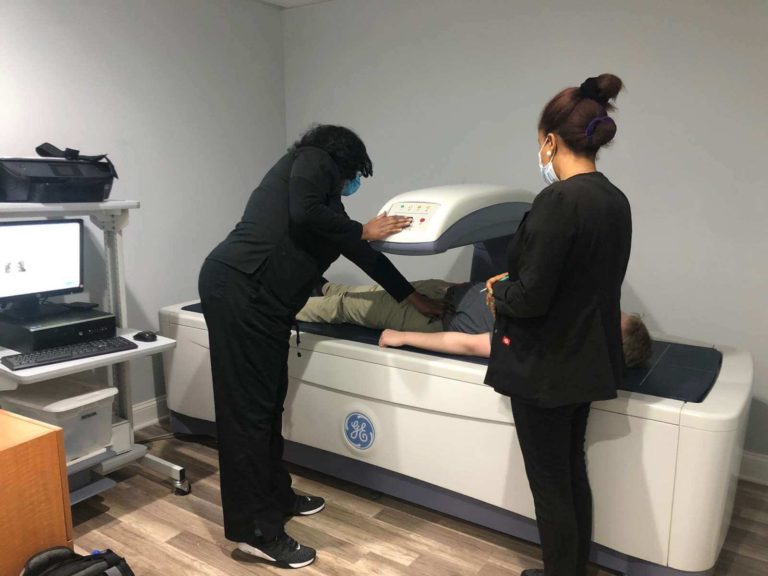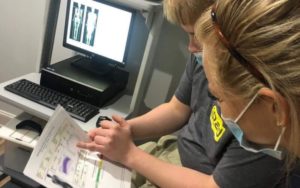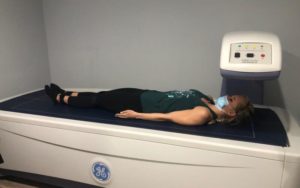
Get a DEXA Scan in Alexandria, VA / DC Area
Are you looking for a DEXA Scan provider in Alexandria, VA? Our office is conveniently located and we have a DEXA Scan radiology tech and a licensed dietitian nutritionist to help you get started with your weight loss goals.

The DEXA total body composition scan will give you the individual results you need to watch your progress and help keep you motivated. Similar to the scale, watching your weight improve can be motivating, however, the scale doesn’t tell you if the weight you are losing is fat, muscle, or both. With the DEXA, you will know if you are losing more fat or muscle which will help your dietitian nutritionist customize your diet and put you on the right track. People who should consider having a DEXA scan include: patients trying to lose weight and/or want to monitor body fat loss and muscle growth from exercise, want to reduce the risks of heart disease, diabetes, high blood pressure, high cholesterol, cancer, and obesity. Athletes or bodybuilders who need to monitor muscle mass while trying to achieve a low ratio of fat to lean tissue mass are also good candidates.

Popular methods like hydrostatic weighing, the Bod Pod, the In – Body and calipers rely on calculated body fat measurements that are influenced by uncontrollable environmental variables and human error. Underwater weighing, the pre-DEXA body composition gold standard, assumes that densities of fat mass and fat-free mass are constant. However, this doesn’t take into account a few important conflicting variables that strongly influence the equations used to calculate body density. Measurements by calipers (skin fold) and electrical impedance testing are the most common, however the most inaccurate.
On the day of the exam, you may eat normally. You should not take calcium supplements for at least 24 hours before your exam. You should wear loose, comfortable clothing, avoid garments that have zippers, belts, or buttons made of metal. Objects such as keys or wallets that would be in the area being scanned should be removed. You may be asked to remove dental appliances, eyeglasses, and any metal objects or clothing that might interfere with the x-ray images. It is also important to inform your X-ray technologist if you recently had a barium examination or have been injected with a contrast material for a computed tomography (CT) scan or radioisotope scan. You may have to wait 10 to 14 days before undergoing a DEXA test. Women should always inform their x-ray technologists if there is any possibility that they are pregnant. Many imaging tests are not performed during pregnancy so the fetus will not be exposed to radiation.
BMI is a standard indicator; a height to weight ratio used to categorize weight status as underweight, normal, overweight, and obese. The BMI system can be used to classify average individuals with average muscle mass, however, it is not an accurate measurement because not everyone has the same exact lean muscle mass. For example, a bodybuilder who is 250 pounds and 6 percent body fat can have the same BMI as an obese person who is 250 pounds with a 40 percent body fat. Weight means nothing unless you can accurately assess if it is fat or muscle.
The DEXA scan can be performed 2 to 3 times a year to determine how well your nutrition and exercise regimen is working and to help your dietitian nutritionist make any necessary adjustments to help your reach your body composition goals.


